Several student teams demonstrated their vehicle, boat or robot suit this summer. They won a lot of prizes. Delta lists the results.
Project March was one of the student teams that presented their product this summer. In their case, a walking suit for Koen van Zeeland (centre), a paraplegic patient (Photo: Tim de Mooij)
New world record for Eco-Runner hydrogen car
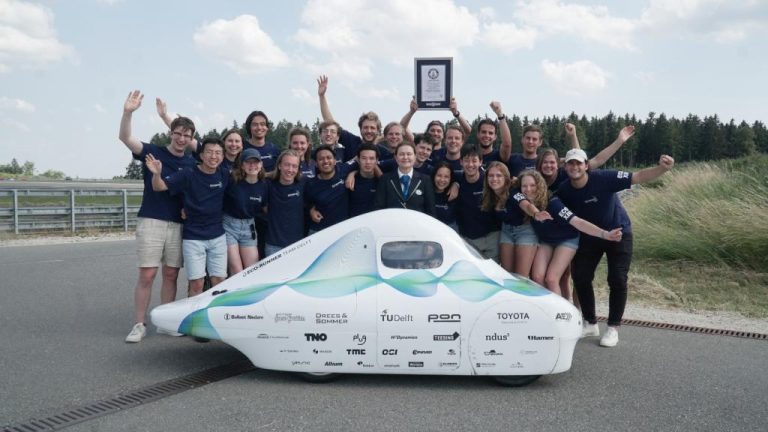 After achieving the world record, the Eco-Runner Team is euphoric. (Photo: Florian Cascino)
After achieving the world record, the Eco-Runner Team is euphoric. (Photo: Florian Cascino)
Even before Delta took its summer break, the students of Eco-Runner Team Delft grabbed an official Guinness World Record at the end of June. Their home-built hydrogen car that they designed themselves drove 2,488.50 kilometres in a row without refuelling. The car came a whopping 332.8 kilometres further than the previous record holder.
Those who watched the spectacle needed some patience. For 71 hours and 30 minutes, the hydrogen car drove around the South German circuit where the team had settled for the record attempt. The team members took turns behind the wheel in two-hour shifts. The team believe that their success was due to the vehicle’s level of efficiency: they sought the ‘technical limits’ of the lowest possible weight in the design and manufacturing process, they said.
The hydrogen car ran on an electric motor. So the less than one kilo of hydrogen on board was not burned directly, but converted into electrical energy in a fuel cell. This releases no greenhouse gases, only water vapor and heat.
Hydro Motion Team world champion on hydrogen
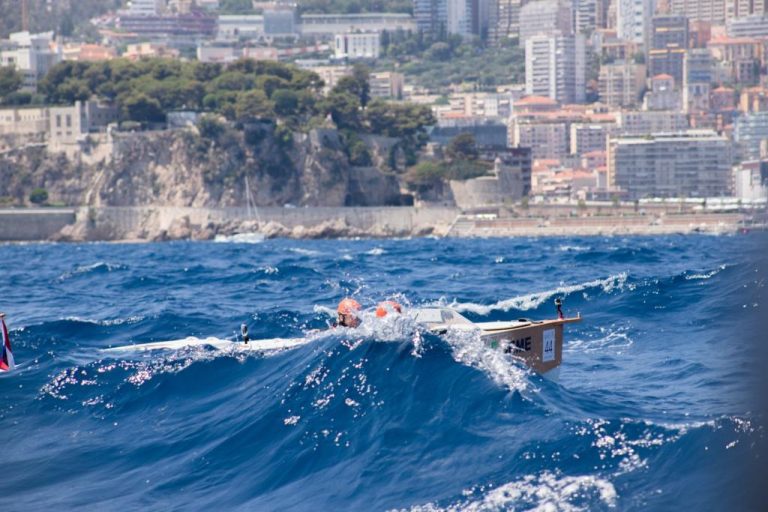
Despite disruptive waves, the Hydro Motion Team managed to take first place. (Photo: Monaco Energy Boat Challenge)
Not only was there success with hydrogen on land, but also at sea TU Delft students won prizes. The hydrogen-powered hydrofoil boat named Aurora of the TU Delft Hydro Motion Team took first place in the Open Sea General Ranking in Monaco at the Energy Boat Challenge held there between 5 and 8 July. Aurora was the only hydrogen-fuelled boat in the field and also the only one without certification. Yet the students managed to outperform the factory boats.
During the manoeuvrability test, they took second place. And during the endurance race, which counts double, they hit their stride. In just under three hours, they completed 14 laps, or 78 kilometres in total. After that, the sea got too rough. That was also true for the speed challenge the next day. Incoming seawater broke the boat which had to be towed back. Nevertheless, the Hydro Motion Team won the competition.
Project March creates new prototype exoskeleton with brain control
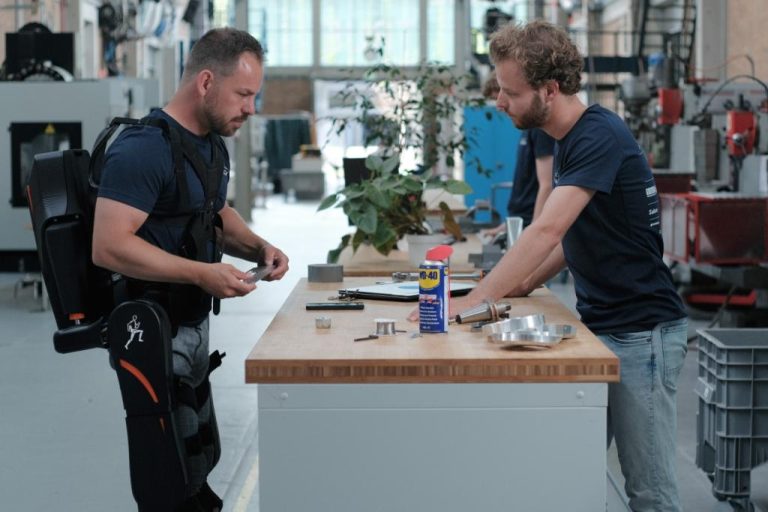
Koen van Zeeland can now stand without crutches. And the students also have a solution ready for squeaky hinges. (Photo: Tim de Mooij)
Project March demonstrated the new March VIII prototype exoskeleton at the Rotterdam Submarine Wharf on 21 July. Twenty-seven TU Delft students and pilot Koen van Zeeland have worked on it for a year. Thus, they are moving ahead step by step with a motorised robot suit that enables a paralysed user to stand up and walk.
A notable difference from last year is that Van Zeeland can now stand without crutches with the help of extra sensors that actively keep the suit balanced. The team also improved the brain control. Last year they managed to start the suit by having the pilot think about walking, now they have also managed to stop it in a similar way.
Delft Hyperloop is most innovative
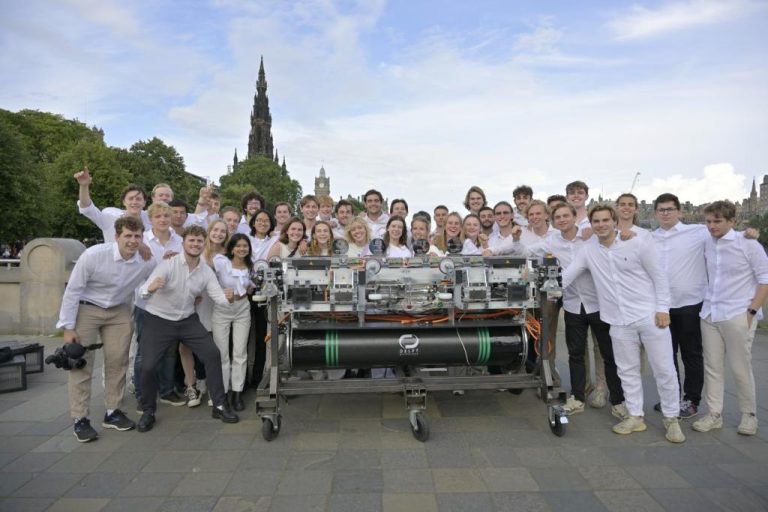
During the European Hyperloop Week in Edinburgh between 17 and 22 July, the Delft Hyperloop team emerged as the most innovative. (Photo: EHW).
“It was a euphoric moment to see the pod (Hyperloop cabine, ed.) floating while a huge crowd cheered us on,” recalls Umika Bhagole on the last day of the European Hyperloop Week. She is Team Captain of Delft Hyperloop. The TU Delft team won the innovation prize and the mechanics prize there. The team demonstrated no less than three unique techniques with their suspended hyperloop cabin (or: pod).
Electromagnets levitate the pod just above the track, eliminating friction. Propulsion comes from moving electromagnetic fields from within the pod, and not – as other teams do – from the runway. The runways can therefore be made quite a bit cheaper. The team has also included a heat storage unit that works even in the absence of air (after all, the Hyperloop is designed for a vacuum tube): it’s a paraffin-based heat battery.
Brunel Solar Team presents new solar car: Nuna 12
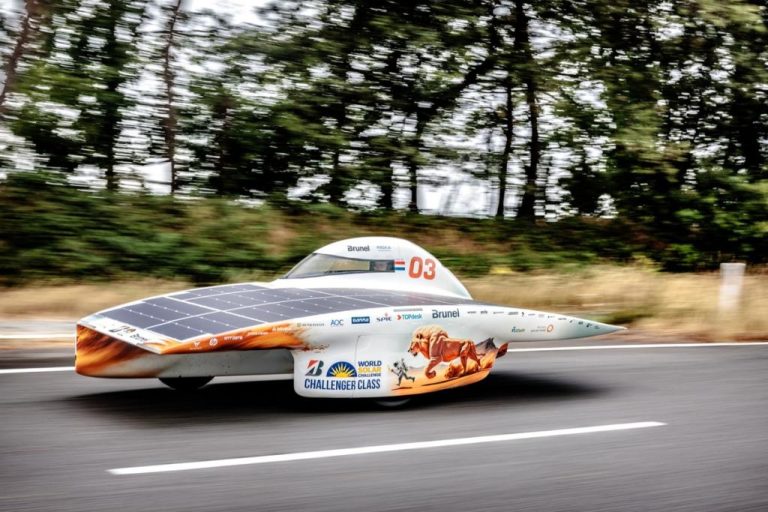
On July 4, the Brunel Solar Team presented their Nuna 12. With this solar car, the students aim to win the Bridgestone World Solar Challenge. (Photo: Jorrit Lousberg)
Finally, a student team that will not really prove itself in Australia until this autumn, but that nevertheless presented the new solar car model, Nuna 12, on 4 July. Indeed, in October, TU Delft will again be at the start of the Bridgestone World Solar Challenge, the five-day race across Australia known as the world solar racing championship.
The Brunel Solar Team has ventured into all sorts of new innovations in solar cells, energy storage and aerodynamics. For example, the new battery can store almost 50 percent more energy than the previous model. The solar panels themselves are also becoming increasingly efficient. There is no shortage of ambition. “If we can pay a small advantage with these innovations, we will become world champions” says team leader Lennart Hessels at the presentation.
- How does the Solar Team prepare for the big race? The film “Dancing in the Desert” answers that question. Filmmaker Bram van Splunderen followed the student team that built the predecessor of Nuna 12, the Nuna 11. Will they succeed in winning the race in Australia? Thursday, August 23 at 14:00, the film will premiere on the Market in Delft. Admission is free.
Trailer ‘Dancing in the Desert’ (Production: VPRO)
- Was your team also successful and did it go unnoticed?
Let us know by e-mailing us at the link below.
Delta, Kim Bakker en Jos Wassink
Do you have a question or comment about this article?
j.w.wassink@tudelft.nl

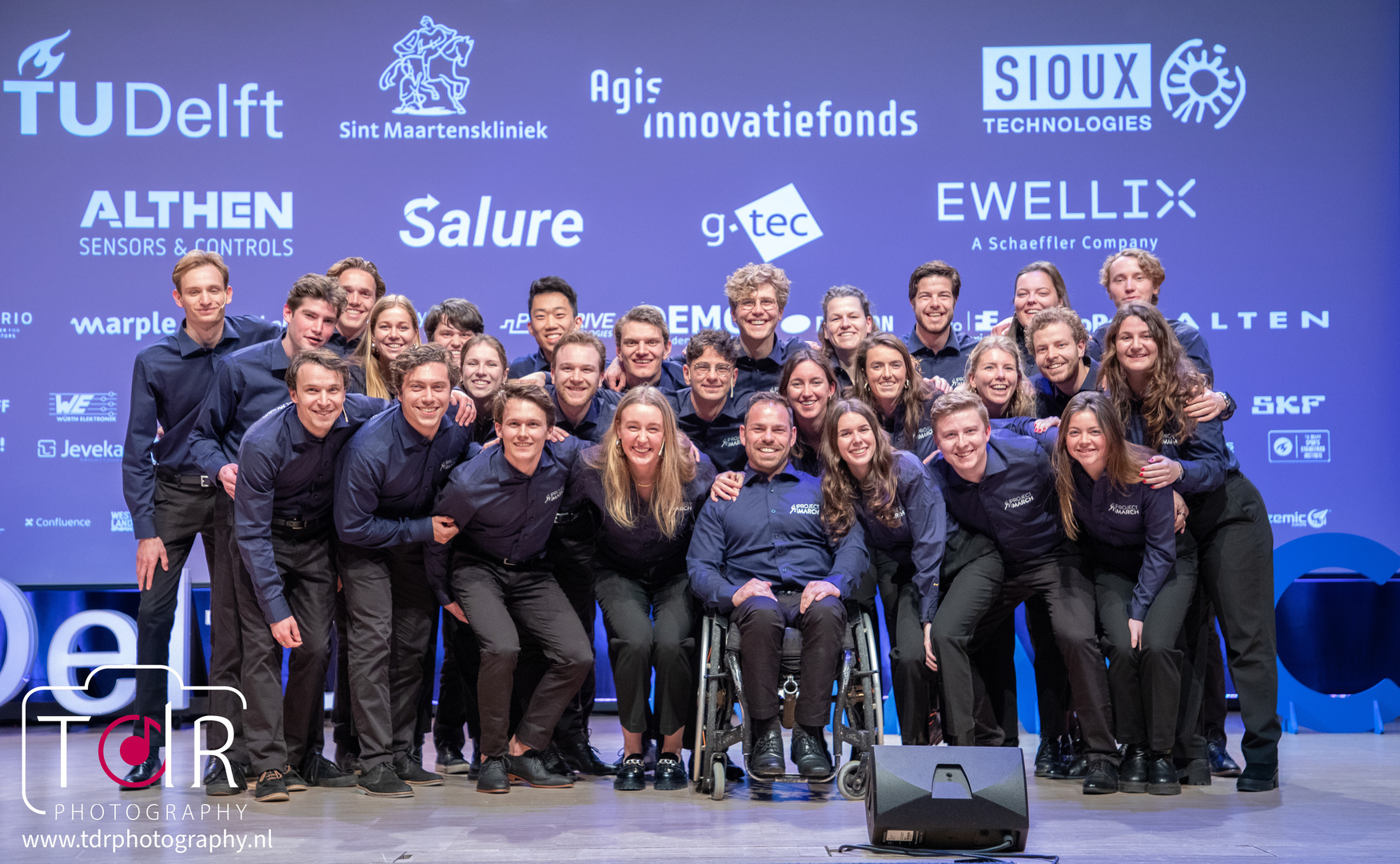
Comments are closed.